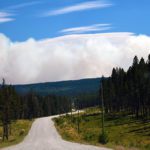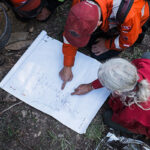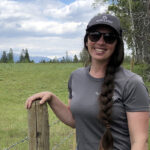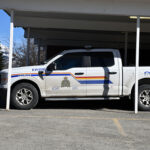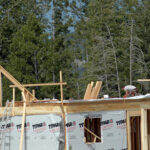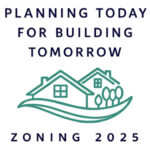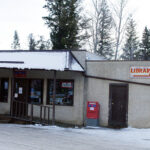Home »

COVID-19 regional snapshot as of May 26
NEW updates surrounding the COVID-19 pandemic (as of Tuesday, May 26), as compiled by the Regional District of East Kootenay (RDEK).
Current Situation in B.C. (as of 3 p.m. PDT May 26).
Cases:
Total confirmed cases in B.C. (since January): 2,541
New cases since May 25: 11
Hospitalized cases: 37
Intensive Care: 7
COVID-19 related deaths: 161 (no new)
Recovered: 2,122
Long term care/assisted living homes affected: 14
Acute-care unit outbreaks: 1
Confirmed cases by region:
Vancouver Coastal Health: 897
Fraser Health: 1,261
Island Health: 127 (no new)
Interior Health: 194 (no new)
Northern Health: 62 (no new).
EK RESTART
The RDEK, municipalities and many First Nations in the East Kootenay continue to work collaboratively on re-opening plans for local amenities. By early next week, many public washrooms, municipal playgrounds and outdoor exercise areas will be opened around the region. Residents are encouraged to keep the basic personal responsibility measures in mind when using amenities, particularly washing hands, carrying your own hand sanitizer and following physical distancing guidelines.
As part of the re-opening, many local governments will have Community Ambassadors out and about in the community to provide information to the public and awareness on physical distancing and safety guidelines as current and future phases of BC’s Restart Plan roll out.
The Regional Emergency Operations Centre continues to operate and is coordinating regional conversations around other segments of re-opening including facilities, local government offices, services and programs.
School Districts Nos. 5 and 6 are finalizing plans this week to welcome more students back into schools starting June 1 and will be communicating specific details directly with parents.
NEW Provincial Updates
- There was good news today as only 11 positive cases have been identified in the past 24 hours and, for the first time in weeks, there were no new COVID-19 related deaths.
- There are currently 258 active cases in B.C. In Interior Health, 187 of the 194 confirmed cases have recovered and there have been 2 COVID-19 related deaths since January.
- A key area of focus for public health officials is on identifying new cases quickly, then tracing those positive cases including follow up with people they have been in contact with.
- B.C. has secured addition personal protective equipment (PPE) this week including 151,772 N95 respirators, 255,600 surgical masks, 1.38 million pairs of gloves, 7,405 pieces of eye protection and over 233,000 gowns. Any products not secured from traditional or trusted vendors will be tested before being put into use.
- B.C. has secured a new machine to help test mask and filter efficiency to ensure their safety prior to being put into use. The new machine now allows this testing to happen here in B.C.
- A new program to restore dormant and inactive wells and bring support to B.C. workers in oil and gas service companies received over 1,100 applications within the first day.
- The Premiers of B.C., Manitoba and Yukon issued a joint statement today in support of a federal sick leave program.
NEW FEDERAL Updates
- An investment of up to $9.2 million has been announced to enhance the Youth Employment and Skills Program and fund up to 700 new positions for youth in the agriculture industry. This additional funding will help the agriculture industry attract Canadian youth, ages 15 to 30, to assist with labour shortages brought on by the pandemic.
- The Federal government has signed a contract with GM Canada to produce 10 million face masks at the Oshawa plant. In addition, it has signed a contract with another Canadian company for 10,000 ventilators.
- The Department of National Defence announced $15 million and the first call for innovations to address safe and rapid decontamination of enclosed work environments; innovative designs to decontaminate PPE and clothing/equipment for responders to biological hazard events; and, data gathering solutions to support early detection and community-based monitoring of outbreaks.
FOCUS ON TESTING AND EARLY DETECTION AS BC PREPARES TO MOVE TO PHASE 3
Phase 3 of the BC Restart Plan starts in June with the next steps in our reopening in BC. As we continue to expand our social,
economic and surgical circles, it is important to remember that COVID-19 is still present in BC and we need to remain diligent.
It is very important that anyone who has cold, influenza or COVID-19 like symptoms, even if they are mild, get tested. This will help the Health Authority identify new cases early and help prevent new spikes in community transmission. Symptoms of COVID-19 include:
fever
chills
fatigue
cough
shortness of breath
sore throat
painful swallowing
stuffy or runny nose
loss of sense of smell
headache
muscle aches
loss of appetite
conjunctivitis
If you are experiencing any symptoms, contact your physician for an assessment to see if you should be tested.
If you test positive, health officials will work with you to determine where you may have caught the virus and who you may have exposed to it. This contact tracing is an important part of the process moving forward. Officials will investigate to determine if others may have been exposed to the virus at the same place(s) you were and will put measures in place to stop the spread. They will ask those you have been in contact with to monitor themselves for symptoms, to take all precautions to prevent spread and to contact their health care provider or testing centre immediately should they develop symptoms.
Testing is also available by appointment at testing centres in Cranbrook, Sparwood, and Golden. For more information, contact your physician or visit the Interior Health site.
Wearing, making, and cleaning cloth face masks
Wearing a non-medical or cloth mask is a matter of personal choice but can help to protect others. Wearing a mask can help contain your own droplets from coughing, sneezing, speaking or laughing. Wearing a cloth mask will not protect you from COVID-19 but it is a good option in situations where you cannot keep a safe distance from others for an extended period of time such as when you are at the grocery store or getting a haircut.
Homemade or cloth masks should be cleaned and changed often: To clean a homemade cloth mask, wash it using the directions on the original material (for example, if the mask was made from t-shirt material, follow the washing instructions for a t-shirt). Warmer water is better. Dry the mask completely (in the dryer on a warm/hot setting if possible).
For more information, visit: https://www.bccdc.ca.
How to safely wear a cloth face mask
Tips on how to make a cloth face mask.
Survey UPDATE
The province is looking to hear from more people in rural B.C. in its COVID-19 survey so that survey results also reflect areas outside of large urban centres.
In the East Kootenay, one sector that they have identified as a gap is young men between the ages of 18-34.
The survey deadline is May 31.
RESOURCES
Important Phone Numbers:
888-COVID19 (1-888-268-4319). The line is for non-health COVID-19 information.
811 – for health related information on COVID-19
211 – seniors looking for help (or volunteers willing to help), can call 211 or visit: https://www.bc211.ca/
Crisis Line: 1.888.353.2273
Kids Help Phone: 1-800-668-6868
Online Links:
COVID-19 Self Assessment Tool & App – use this online tool to complete a self-assessment & get updates.
BC Centre for Disease Control – includes information on their testing protocols.
Interior Health – links to the latest Interior Health information.
Government of Canada – statistics, travel info and economic and financial supports available federally.
Province of BC Information Hub – links to Provincial supports for non-health information
RDEK
